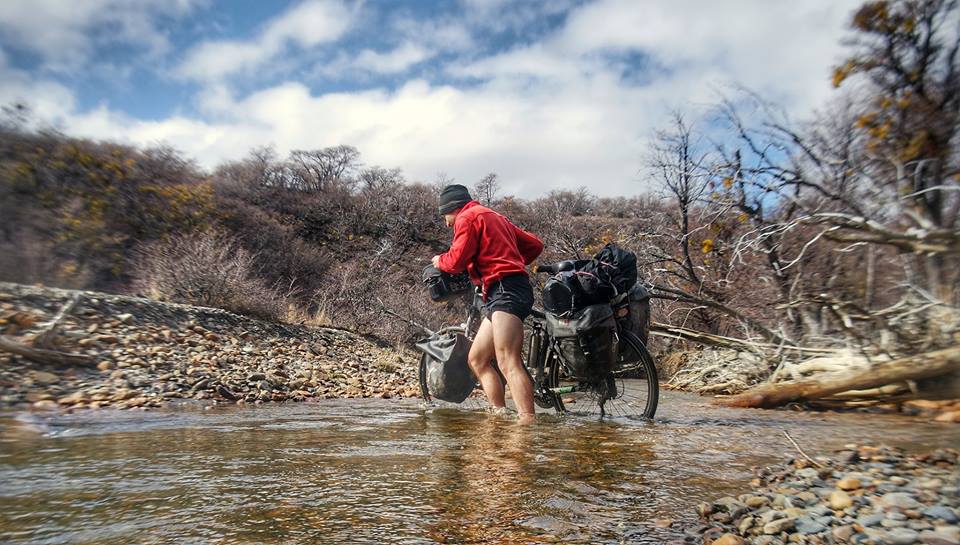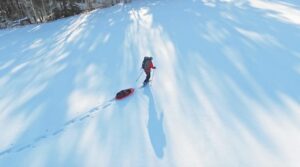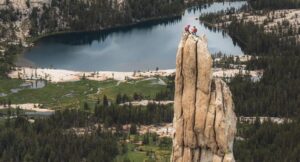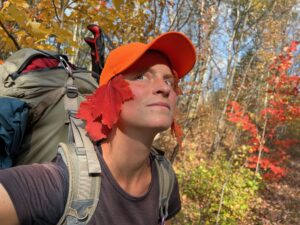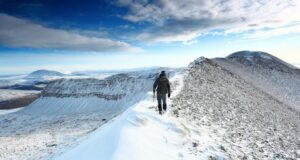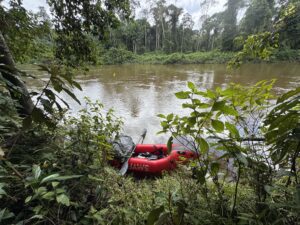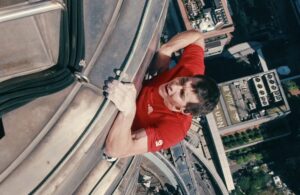
The town of Villa O’Higgins in southern Chile. Photo: Radu Paltineanu
Romanian endurance cyclist Radu Paltineanu found heartbreak and ‘the need to change something in his life’ to be his greatest motivators. After his girlfriend dumped him, along with the growing prospect of landing a boring office job Paltineanu diverted all his energy into a project now known as Cycling the Americas, a 34,000km expedition from Alaska to Ushuaia, Argentina.
No stranger to long-distance biking, he has previously pedaled across Europe and Central Asia. But for cyclists, the Pan-American highway is the ultimate challenge. Several have done the route. Some have even hiked it. But the distance remains a staggering commitment. As he passes through Argentina, his last leg, he has already been 38 months on the road with 33,000 km so far.
Sponsors, donations and the kindness of random strangers have kept him going. His accommodations have, at times, been odd. In Mexico, he willingly spent the night in a jail cell; in Ecuador, in a fire station. Locals have also welcomed him into their home, and he had the privilege of spending time with the former president of Uruguay. According to him, he ‘left Alaska with very little money and…relied on people’s help.’ In his eyes, the human aspect of his adventure holds as much importance to him as the journey itself as ‘travelling the way I do makes you see the human part of the world.’

Paltineanu with former president of Uruguay, Jose Mujica. Photo: Radu Paltineanu
His gear includes his Cross Quest bike, GPS, MP3 player, phone, tools for repair and maintenance, clothing, food, a mattress, Marmot Never Winter sleeping bag and tent which he tightly packs and stores in two Mainstream MSX panniers at the front and rear. He rides with a weight varying from 40 to 50 kg depending on the region. Now and then, Paltineanu leaves his bike to scale mountains. He has climbed the Orizaba peak in Mexico and the Cayambe, Illiniza North, Caryhuairazo and Chimborazo peaks in Ecuador.

Lake Esmeralda, Chile. Photo: Radu Paltineanu
Of the many dangers he has faced, sharing a boat with drug traffickers in the Darien Gap was probably the most ticklish. Adventurers do not take this infamous crossing between Panama and Colombia lightly. Many are killed, trafficked or imprisoned by Panamanian authorities. However, while dangerous, the crossing is not impossible. It is recommended that those who wish to cross get in contact with those familiar with the process. Paltineanu managed to speak with American cyclist Lucas Brunelle, who advised him to invest the time persuading the Panamanian border patrol of his innocent intent and to carry cash at hand for bribes. Another close call would be his time in Venezuela ‘which everyone advised me not to do.’ Due to the crisis, foreigners are more prone to robbery and murder for their foreign currency. Bandits stormed his hotel’s lobby looking for him but to no avail, as the hotel’s reception were ignorant of his room number. Upon leaving, the Bolivarianas escorted him out of the city of Calabozo.
As for his motivation for continuing such a strenuous journey, he says ‘the best motivation that keeps you going for so long is the adrenaline of the unknown. I don’t really know where I end up today, who I will be meeting or what new experiences will I have.’
He plans to produce a documentary — a cultural record more than a tale of derring-do — about his expedition. Readers can follow his progress on Instagram, his website and Facebook page.
